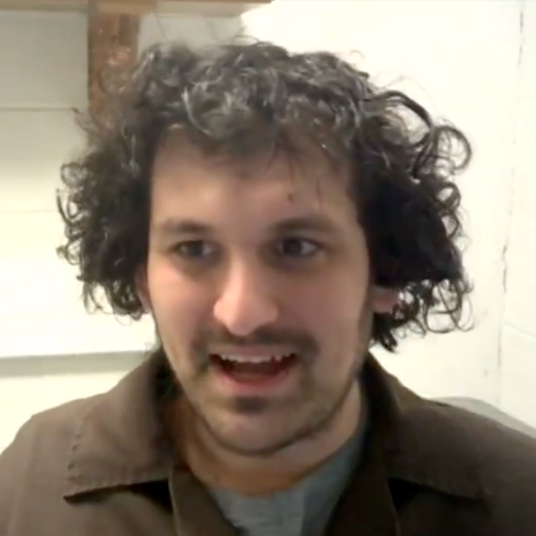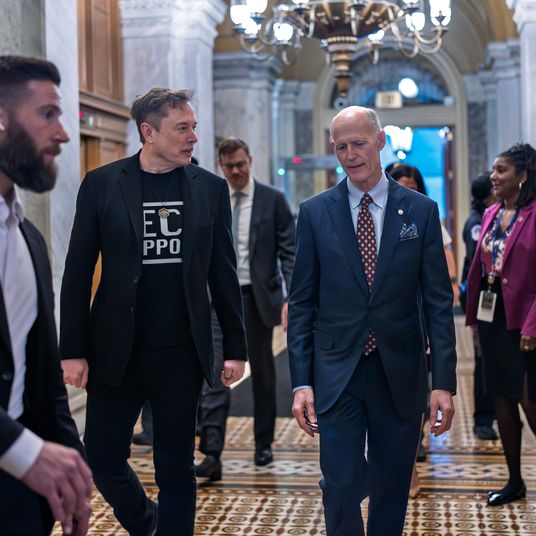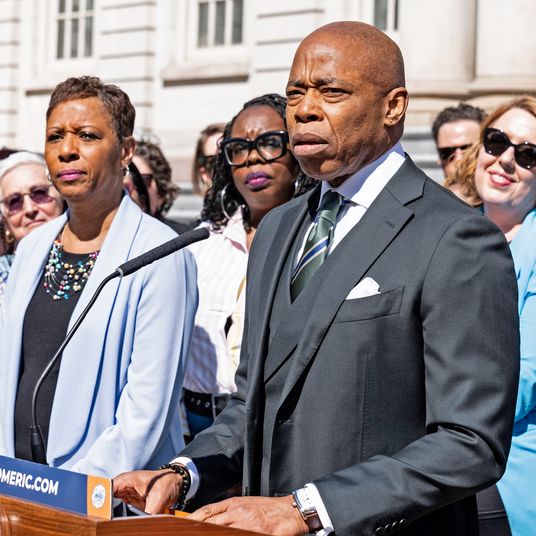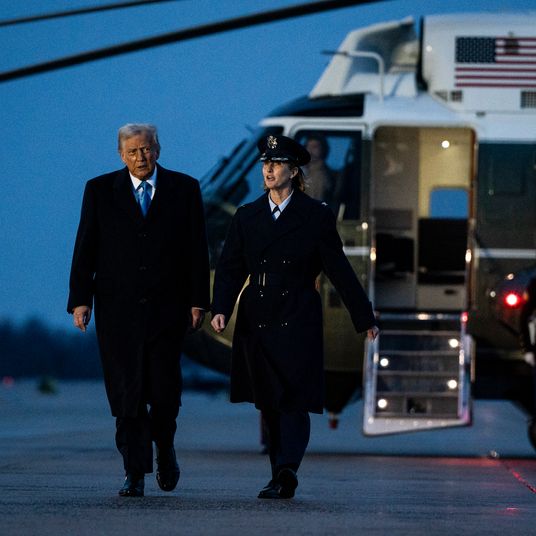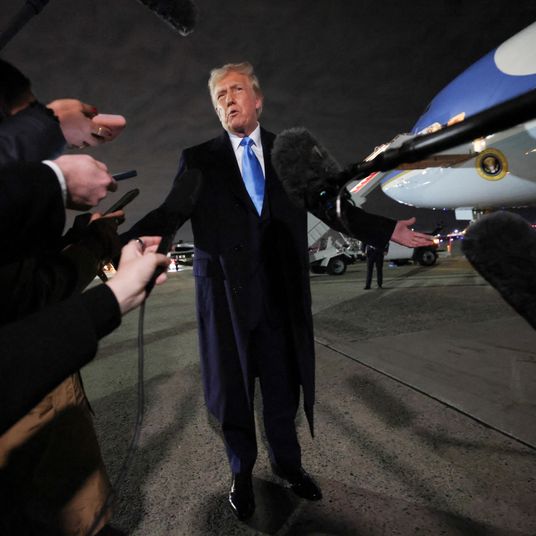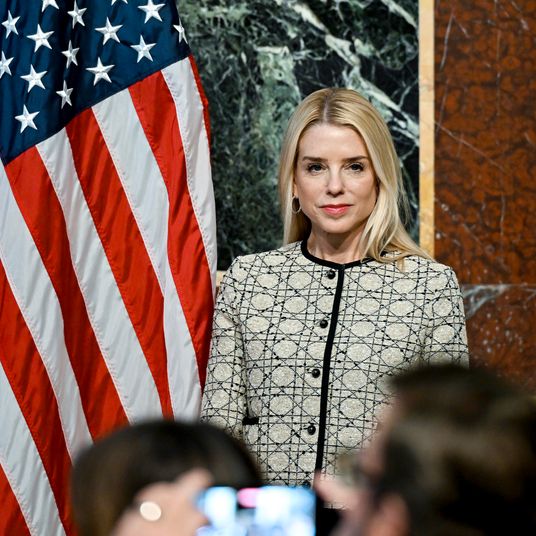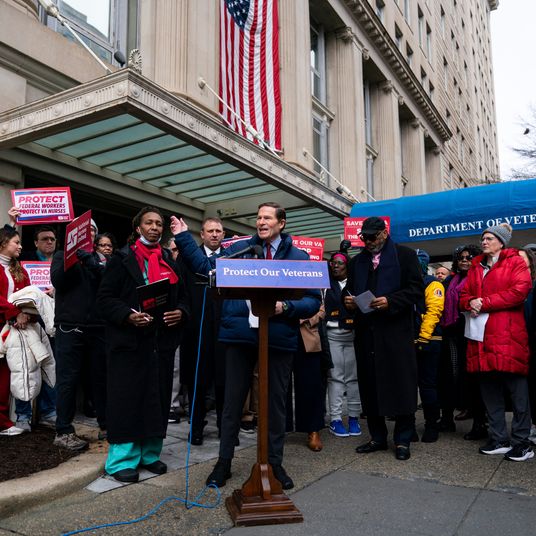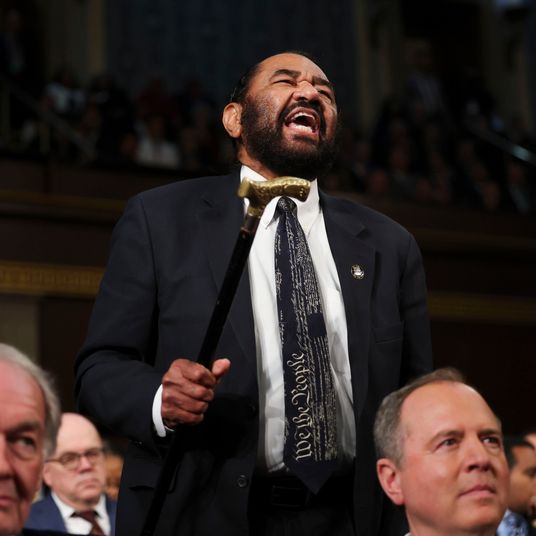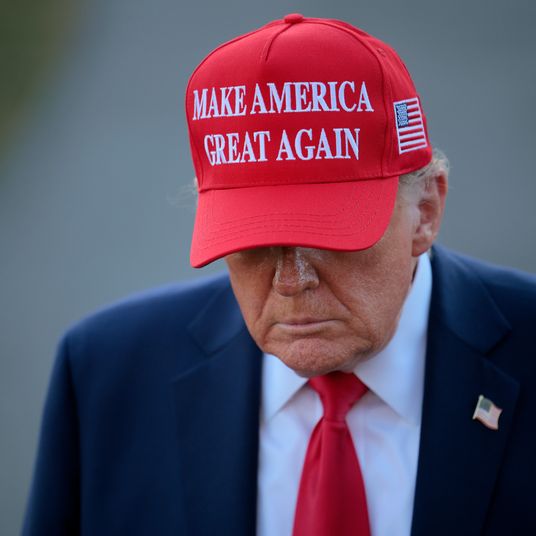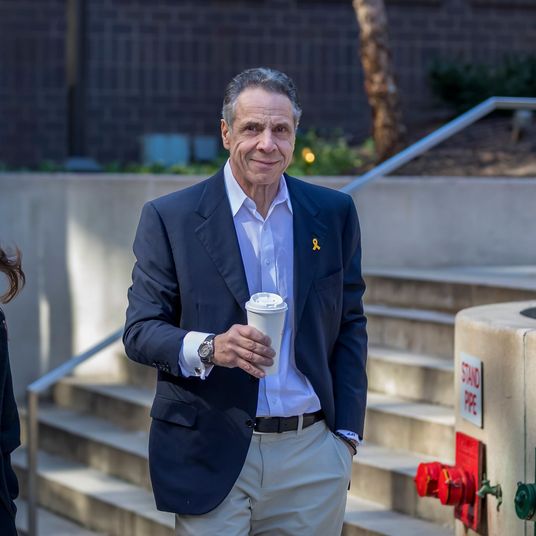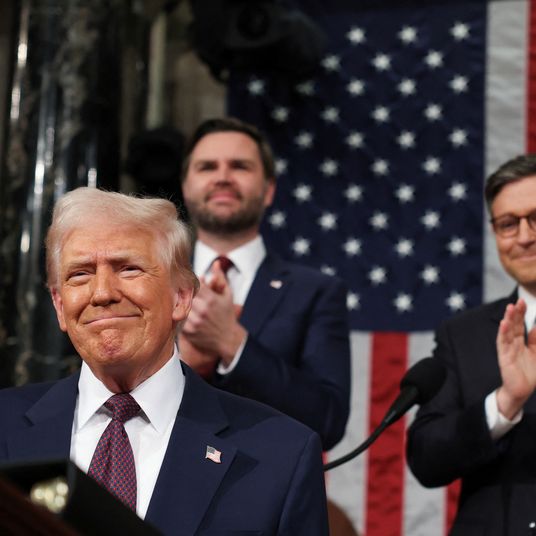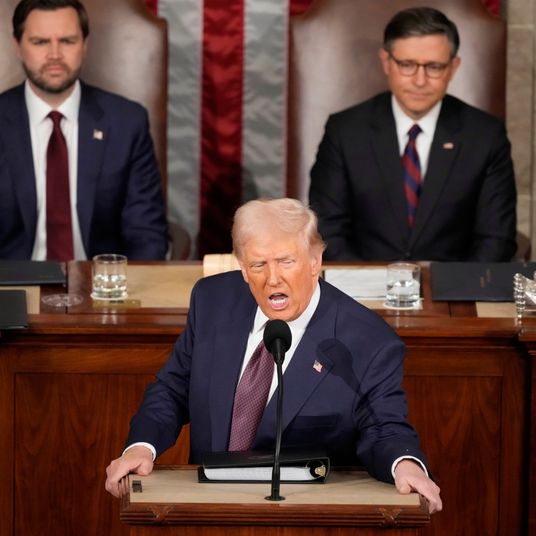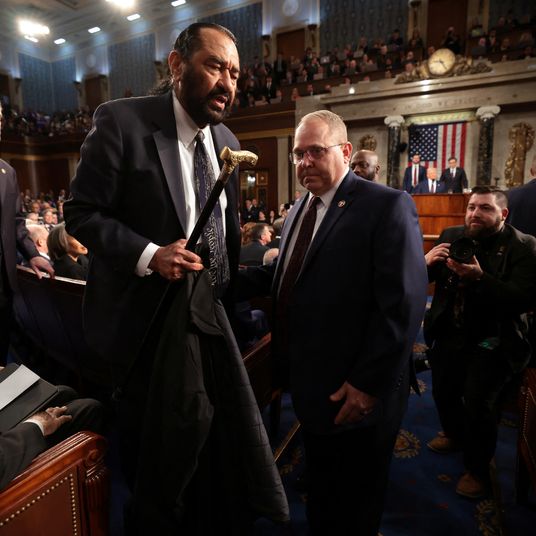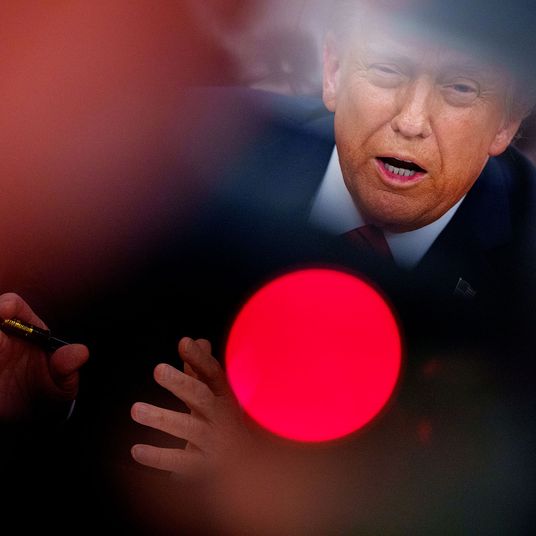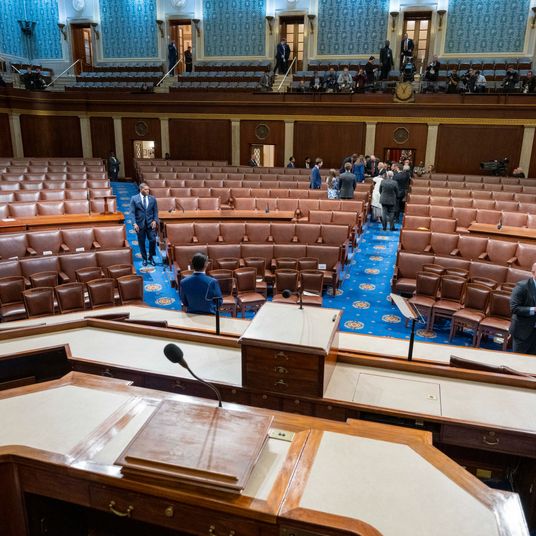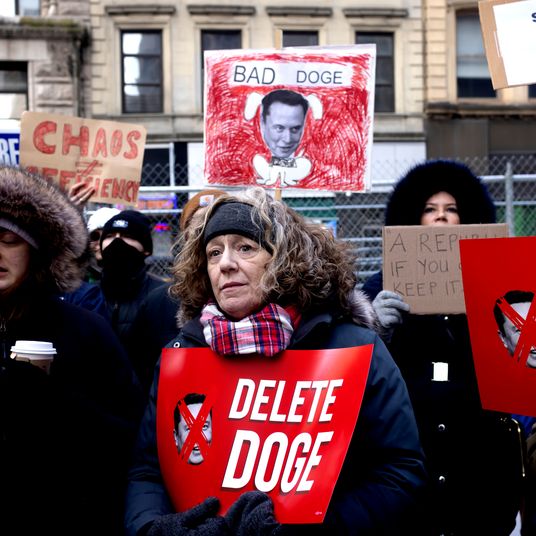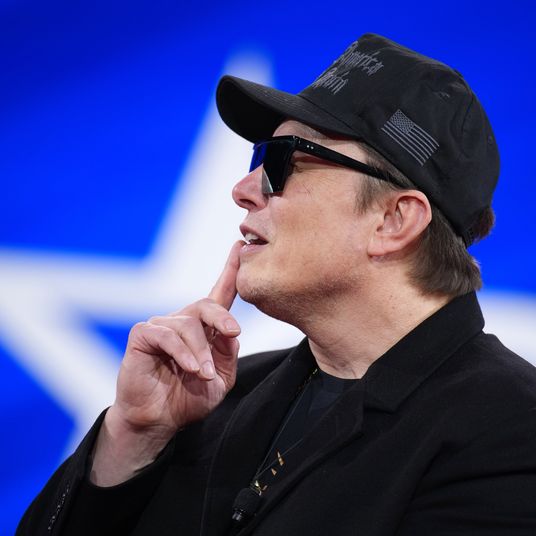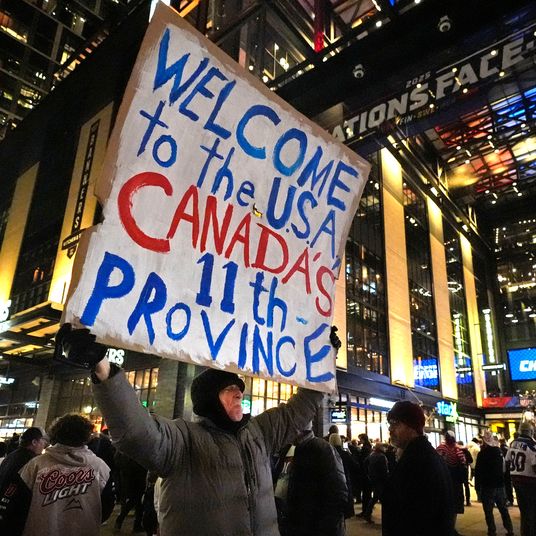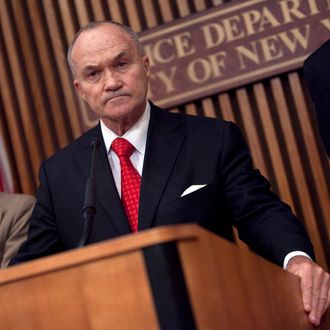
At the 92nd Street Y last night, NYPD Commissioner Ray Kelly dispensed with the obvious questions as quickly as he could. In conversation with Reuters editor-in-chief Stephen Adler, Kelly was asked first about recent reports that he’d agreed to stay on as the top cop if Christine Quinn is elected mayor. Barely a sentence out of his mouth — “We never had that conversation” — a young black protester shot up in the audience and started screaming about stop-and-frisk. Security moved fast, but another stood immediately like a game of Whac-A-Mole, this time a middle-aged white man with wild hair yelling comparisons of Kelly’s police force to the Ku Klux Klan. “He was not part of the 68 percent,” said the police chief, grinning, in reference to his sky-high approval rating.
About a dozen protesters had convened out front as well, unwilling to shell out the $29 for tickets, but happy to welcome the quite bald, bespectacled crowd as they entered. “Ray Kelly, you cant hide/we charge you with genocide,” the group chanted before tiring of the rhyme and growing quiet. “What about ‘no justice, no peace’?” one person suggested. “The old standby,” agreed another.
Inside, Kelly got right back to denying everything. “I have no plans to run for public office,” the commissioner said in response to Adler’s second question, about the persistent rumors and pleas that Kelly run for mayor as a Republican. Adler practically blushed at the chief’s brusqueness and mentioned that he was just doing his job.
The crowd cleared of disruptors and the speculative questions out of the way, Kelly grew more comfortable as he addressed the hot-button issues he’s grown used to in his eleven years atop the largest law enforcement agency in the nation. The lines of inquiry were general, allowing Kelly to riff on his usual arguments, and the room remained polite, chuckling at his old New York anecdotes. His son, local Fox anchor Greg, sat in the back of the hall, but left early.
Asked about the huge rise in the number of stop-and-frisks, Kelly said it’s “simply not the case” that the figures have increased dramatically. “We weren’t able to record and it wasn’t being reported,” he said. “We’re being criticized for better record keeping.” (The nearly 700,000 stops on the books in 2011 nonetheless dwarf the 97,000 in 2002.)
“I wouldn’t want to be stopped,” he admitted later when confronted with the hassle faced by men of color. “I don’t want my time to be taken from me.” But, he said, “If somehow it is eliminated, the people who are going to suffer are in those communities. We are saving lives.”
Adler, touching on additional civil liberties concerns, pressed Kelly on the possibility of drone surveillance. “You can go to Brookstone and buy a drone,” Kelly suggested. When asked whether the NYPD is actively looking into the technology, he shot back, “You’re really into these drones,” to laughs, and then said simply, “No.”
Kelly went on to call the Associated Press series on the NYPD spying in Muslim communities “full of mistakes and half-truths … a terrible job meant to besmirch us,” and added that it may have been the result of some “jealousy at other agencies,” who leaked info to the press. “We have more oversight than any law enforcement in America,” Kelly claimed, denying the need for any more.
As if to put a bow on an appearance in which the only adversarial moments came in the opening minutes, the final audience question asked Kelly for his dream job should he stop serving as police commissioner. “One of those greeters at Wal-Mart,” he quipped to the heartiest chuckles of the event. As the past-its-bedtime crowd shuffled back out into the brisk Upper East Side night, the demonstrators were long gone.







